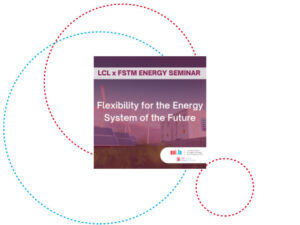On June 30th, the current academic year concluded with another successful Energy Seminar held as a hybrid event on Campus Belval. The topic of the seminar was “Flexibility for the Energy System of the Future” and dealt with how advances in materials for electricity storage, as well as information technology, will facilitate integration of intermittent renewable power sources.
The University was privileged to host Professor Dr. Ferdi Schüth, Director of the Max-Planck-Institut für Kohlenforschung (Germany), as special guest speaker. His view on challenges for scientists and engineers was complemented by Professor Nils Löhndorf, Chair of the Digital Procurement, with challenges for investors and industry. The Energy Seminar was hosted by the Luxembourg Centre for Logistics and Supply Chain Management (LCL) together with the Faculty of Science, Technology and Medicine (FSTM).
Professor Schüth started with outlining why the energy sector is bound to change by considering the three main energy consumers: (1) transportation; (2) heating; and (3) electricity. He presented predictions for temperature increases in the next ten years along with expectation of greater usage of electricity in transportation and heating. Professor Schüth then discussed the necessity of CO2 reduction and possible solutions toward achieving this goal, among them, new chemical processes, long-term storage based on hydrogen, as well as expansion of renewable production and the transmission grid to better match electricity supply and demand.
Professor Löhndorf looked at the value of flexibility as a means to counter the effects of variable power generation. He distinguished between short-term and long-term flexibility and argued that short-term flexibility is already available, whereas long-term flexibility is still lacking. He presented the different markets on which short-term flexibility can generate value and showed for the case of batteries that flexible storage is much more valuable than many people think. Professor Löhndorf emphasised the role of automated trading and control to better monetise battery assets.
